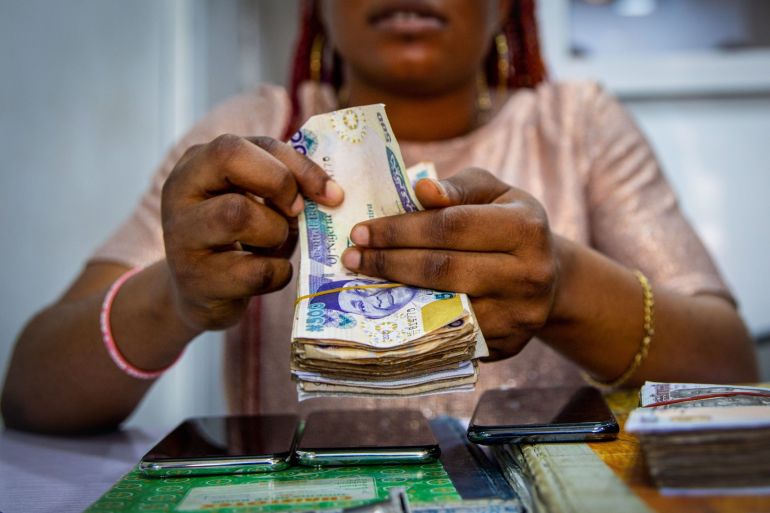The nation’s economic outlook for the second quarter appears bleak, with the naira trading below par against the dollar and other foreign currencies, the Monetary Policy Rate, MPR, hike, and rising inflation rates.
According to the Central Bank of Nigeria, the naira to dollar exchange rate is 460.48 (Selling official rate); however, the naira is N750 to a dollar on the parallel market as of Monday.
While the state of Nigeria’s foreign exchange market has been a source of concern for investors in Nigeria, the increase in the Monetary Policy Rate to 18% from 17.5% last month, as well as an increase in inflation to 21.9%, portends another source of concern for business owners and Nigerians in general ahead of the second quarter of 2023.
It is no longer news that investors and manufacturers will face numerous challenges in Q2 2023. Indeed, investors would pass on the burden of higher energy costs, higher interest rates, and inflation to their customers, in this case, Nigerians.
CBN’s recent position to raise MPR to 18 per cent, and the poorly implemented naira redesign and cashless policy, have been heavily criticized by financial analysts.
However, the CBN justified its policies, saying raising interest rates would help tackle inflation.
The Governor of the CBN, Godwin Emefiele, disclosed that increasing MPR to 18 per cent would help address Nigeria’s burgeoning inflation.
“To reduce the gap in negative real rates, we will continue to tighten but more moderately, ” Emefiele said after last week’s MPC meeting.
But, financial experts have said raising MPR has been inefficient in tackling inflation, and they predict a tight economic outlook for Nigerians and investors in Q2.
When reporters contacted the CBN’s Acting Director of Corporate Communications, Dr Isa Abdulmunin, on Monday to discuss Nigeria’s economic outlook for the second quarter of 2023, he declined to comment.
However, Prof Segun Ajibola, former President of the Chartered Institute of Bankers of Nigeria, told reporters that there is a disconnect between the MPR and the reality of rates in the banking sector.
Due to the current economic conditions, Nigerians are likely to face constraints in Q2.
As a result, the burden of higher interest and inflation rates will almost certainly be passed on to customers, who will have to pay higher prices for goods and services.
He explained that investors in Nigeria hardly make a profit due to the high cost of production.
He added if well managed, a likely removal of fuel subsidies by May 2023 would be a defining factor at the end of Q2.
“The MPR is a reference rate; it becomes compelling if any DMBs approach the apex bank for a loan. Nigeria’s response rate has been very slow, deposit rates are low, and the loan interest is relatively high. There is still a disconnect between MPR and the whole rates in Nigeria.
“The inflation here in Nigeria is cost-pull, not demand-pull. An average manufacturer is securing more cost, usually passed on to the customers. If you now relate the MPR to inflation, the real interest rate is still negative. In other words, the average investor in Nigeria is losing.
“And we are now talking about the likely removal of fuel subsidies, but the effect can be managed to benefit the economy if the refinery is working, Dangote private refinery working, at the end of the day, there would be a silver lining. With CBN addressing the issue of the Naira crisis, small-scale businesses would bounce back in due time. In all, it is a complex issue that needs a comprehensive solution. You cannot address MPR and inflation in silos”, he said.
Also, a financial expert, the CEO of SD & D Capital Management, Mr Idakolo Gbolade, said increasing MPR will further hurt the financial situation of Nigerians.
He stressed that the impending subsidy removal in May would momentarily affect Nigerians.
According to him, the incoming government policy thrust might be a game-changer.
He said investors’ perception of the economic direction of the new government would either affect the economy positively or negatively.
“The hike in MPR will further hurt the financial outlook for Nigerians looking at the impending removal of fuel subsidy, which will increase the pump price of fuel and other associated products.
“The interest rate increase will propel inflation to increase and affect all aspects of production. The investors will profit from increased interest rates as it would further improve their interest margin and make investment returns increase.
“The new administration’s policy thrust will determine the economy’s second quarter performance. The new government is expected to hit the ground running in critical areas of appointment of those that will steer the ship of the new government.
“The perception of investors on the economic policy direction of the new government will either affect the economy positively or negatively.
“The momentary relief in the cash crisis should be followed with far-reaching policy directives to control inflation and increase government revenue while eliminating waste.
“The new government must exhibit its competence early in their administration and take painful but positive steps to steer the economy on the path of growth”, he said.
Government’s insistence on subsidy removal
In this regard, the Director of the Centre for the Promotion of Private Enterprise, Dr Muda Yusuf, said discontinuing fuel subsidies would save the federal government close to N6 trillion in revenue.
As March gradually fades away, Nigerians must brace up for the possibilities of harsh economic realities.
But the federal government must provide its citizens with necessary economic drivers to cushion the adverse effects.

